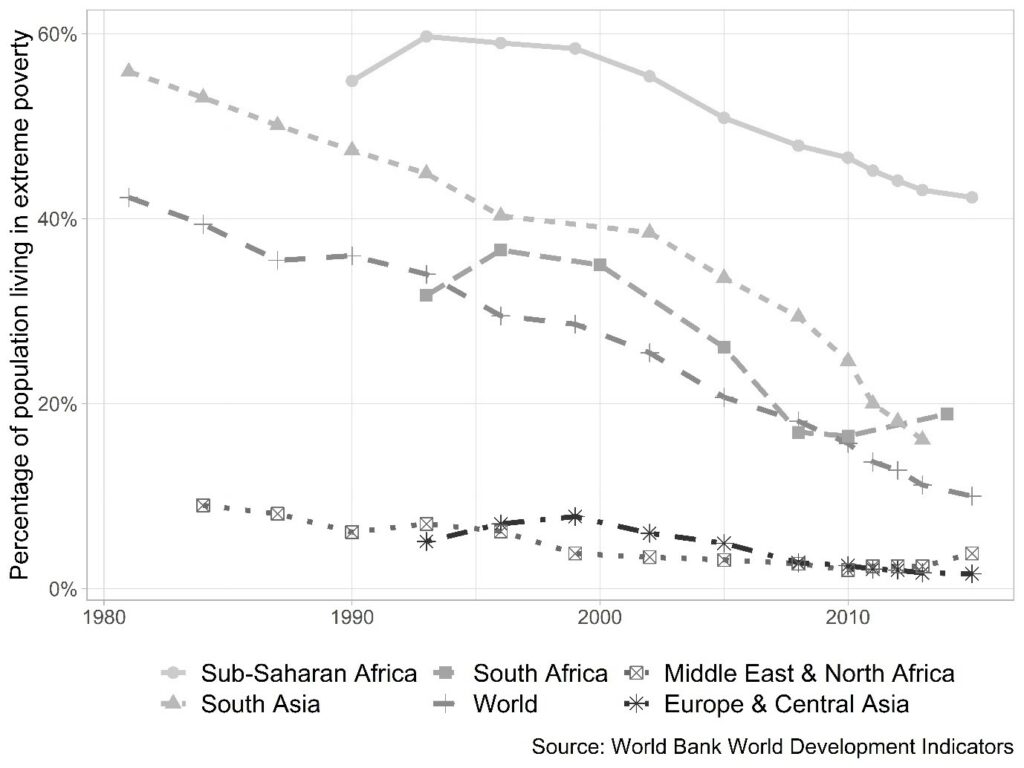
A year or so before South Africa hosted the 2010 FIFA World Cup, a visiting professor gave a talk at a South African university. He asked a very simple question: How do you win a world cup?
Do you, he continued, appoint a very expensive coach? This, in fact, was exactly what South Africa had done. The Brazilian Carlos Alberto Parreira was appointed in 2006 at the exorbitant fee of R3 million (or around $500 000) per month. He was soon replaced by another Brazilian Joel Santana, only to return in 2009 in time for the 2010 finals. The coach could not work his magic, however. Although the tournament certainly did live up to expectations, the performance of Bafana Bafana was somewhat disappointing. After a humdinger of a first game, with a cracking goal by Siphiwe Tshabalala, the team lost badly to Uruguay which basically ended their chances of progression to the knock-out stages.
Or, asked the visiting professor, to win the World Cup, do you give every kid in South Africa a soccer ball? Now, you won’t have much chance in 2010 or in 2014 or, for that matter, in 2018. But by 2022 an entire new generation of kids would have grown up playing football. Some of them would have excelled. They would have been recruited to play for PSL clubs, a few even for prestigious European clubs like Arsenal or Barcelona or Chelsea. The Bafana Bafana team at the FIFA World Cup in Qatar, which kicked off on Sunday, would have had a World Cup-winning team.
The same can be applied to building a prosperous society. If history has taught us anything, it is that wealth is created by empowering ordinary people with the economic freedoms to help them build better lives. Technology can assist. Instead of building big power stations, we should give everyone a proverbial solar panel. Instead of funding a state broadcaster, we should provide free and fast internet access. Instead of designing another top-down economic strategy, we should get kids into good schools so they can design their own. Want to win the economic World Cup? Empower every kid with an economic soccer ball.
This is the main message of my book Our Long Walk to Economic Freedom that was published by Cambridge in August. In 35 short chapters – in which I cover topics from the Out-of-Africa migration, pre-colonial economic systems, Protestant Reformation, Industrial Revolution, colonialism, the Asian miracle, and the future – I offer an accessible (and often humorous) introduction to global economic history, written from a South African perspective. Two lessons emerge: we are rich because we have used science to make us more productive and we have been able to limit the elite’s ability to expropriate that surplus for themselves. I conclude that if we continue to implement these two lessons, there is no reason that the future cannot be even better.
As it is, South Africa is not even participating in the finals in Qatar. Just like our football team’s demise, our country took a wrong turn in 2009 – we abandoned the second of the two lessons. We chose a route of state-led development instead of individual empowerment. A political elite began to expropriate surpluses to themselves instead of sharing it with those who most needed them. The rapid decline in poverty that a democratic South Africa experienced between 1994 and 2008, turned around. The figure below shows South Africa’s sharp poverty reversal since 2009.

To win a World Cup requires a long-term investment. The same is true for building economic prosperity. Let’s hope that South Africa’s leaders, and leaders elsewhere, can take these lessons to heart.
Latest Comments
Have your say!